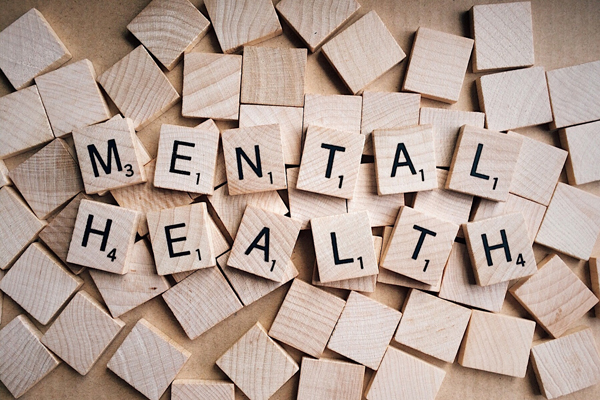Let’s talk about mental health

We all struggle with challenges in life, and we find different ways to deal with and overcome these challenges. But what happens when our ability to cope turns toxic? What happens when our desire to survive ends up hurting us?
Self-harm is a deliberate, self-inflicted way for someone to cope with emotional pain or distress and typically is not meant as a suicide attempt.
It encompasses a lot of different behaviours and acts such as cutting, burning, eating disorders, over-exercising and punching things hard, amongst others. Did you know that self-injury is a coping skill? This is because the person who is self-harming often feels a release when they injure themselves, which helps them forget their internal pain.
The first time I self-harmed, was when I was 23. I was struggling with my mental health and I felt depressed, anxious and overwhelmed on a daily basis. At the time, my physical pain felt easier to deal with than my emotional pain. It gave me a sense of control. Sadly, it became my everyday solution and it felt impossible to stop.
One of the myths around self-harm is that it is ‘attention-seeking’. This could be far from truth. Nobody knew about my self-harm for a long time until I recovered from mental illness. I kept silent about this because I felt ashamed that I was self-harming . However, for others, self-harm might be a means of communicating the distress they are feeling. It is just more than ‘wanting attention’, and this stigma around self-harm can make it even harder. Please remember that self-harm is usually someone’s way of managing very hard feelings or experiences and that is different to suicidal feelings.
Although society doesn’t encourage us to talk about internal pain, it is perfectly okay to not feel better immediately or not be happy all the time. Our pain doesn’t just disappear if we ignore it. Life can mean to be hard at times, and talking about how hard it is helps us face the challenges we all face. We all must acknowledge and validate our struggles.
If you have noticed suspicious injuries on someone close to you or if they have recently admitted to you that they are self-harming, I suggest that you develop a relationship with them. Try to provide a safe, non-judgmental space for them to discuss their feelings. They may not feel comfortable sharing that they self-harm, so please don’t push them to disclose it. But do offer them a chance to connect.
You may also need to encourage better communication. If the person hasn’t told you about their self-harm, you might have to bring up the subject in a caring, non-confrontational way. Remember it is not about judgment and blame but rather about communicating and dealing with problems in better ways.
Please keep checking in on them constantly, be present, supportive and willing to listen and hear what they have to say, even if it is hard to see them in pain. For someone who is going through this, you don’t have to struggle in silence. I encourage you to talk to someone and reach out for support. Talking about how you feel is strength, not weakness. The more you talk about your thoughts and feelings, the more control you have over them. When you bring them out into the open, you demystify them and can start dealing with the root of your thoughts and feelings.
Never under-estimate the power of talking about your mental health.
Author: Rebecca Cherop,
[email protected]




